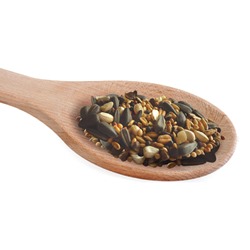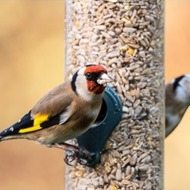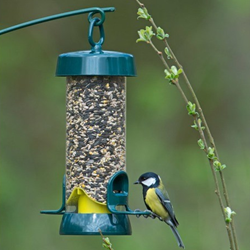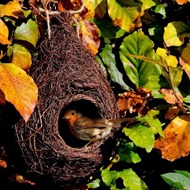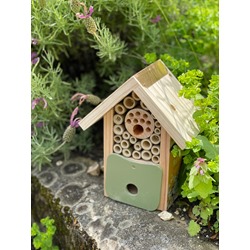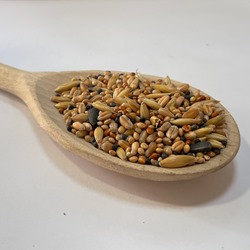If like many people in Britain, you have a deep love for birds, you'll most likely be aware of the various strange and wonderful species that you can find here. For those who don't, however, this guide to some of the rarest birds found in the UK is sure to get your wings flapping with excitement. So strap in and fly with us through our list of some of the rarest birds species found right here in Britain!
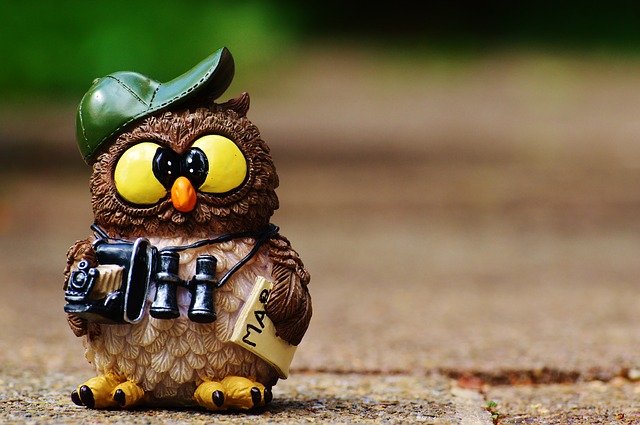
Rare bird species in the UK
Goshawk
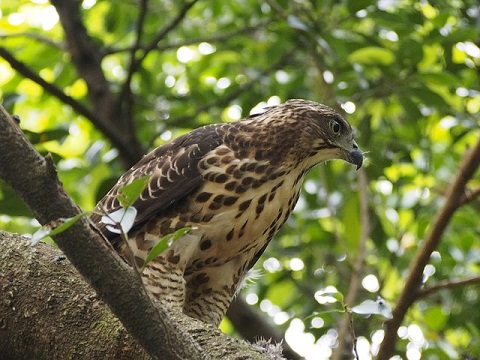
The first on our list of the rarest birds in Britain is the Goshawk. This is one of the UK's most stunning predator birds and is commonly known for performing amazing acrobatics mid-flight while it hunts.
Depending on its age and subspecies, Goshawks' appearance can vary, however, it is often very recognisable displaying its grey and brown feathers. Goshawks can be located in their natural woodland habitat across various areas in the UK after being considered extinct in the 19th century!
Nightingale
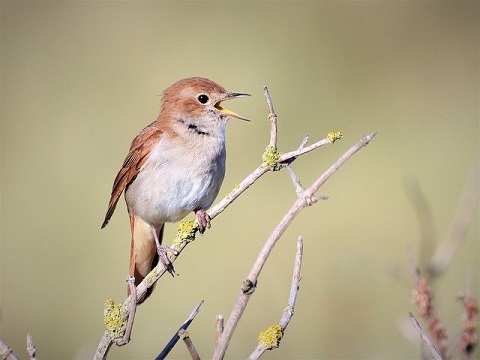
Famous for its bird song, the nightingale is the second on our list of Britain's rarest birds. In terms of size, this bird is slightly larger than a robin, born with plain brown feathers on the majority of its body, apart from the reddish hues that run through the tail feathers and white on its underneath, these are fairly easy to identify.
Nightingales can commonly be found in the south-east of England, where their numbers have trickled down to just 5,000 pairs. These birds love being in dense scrub where they can nest away from any nearby predators, unfortunately, as a result of development or our tendency to tidy areas we deem 'too messy', such habitats are becoming increasingly scarce.
Springtime is the best time of year to see or hear these beautiful little birds.
Capercaillie
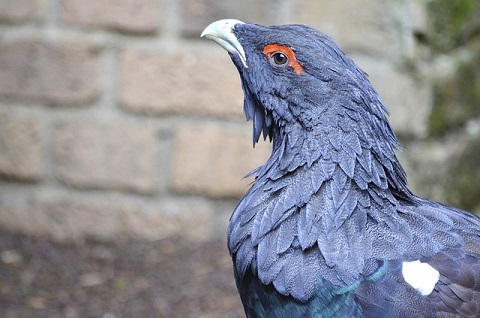
Belonging to the grouse family, the capercaillie is one of the most rarest birds found in the UK and is native to Scotland. They are well known for the differences between males and females, with male capercaillies doubling the size of their female counterparts. The males can be identified through their dark brown and grey feather with a metallic green feather on the breast. When it comes to females, however, their feather exhibit lighter brown tones with silver and yellow feathers on the breast.
For the second time in history, this huge, gorgeous bird is at high risk of extinction as a result of decreased breeding due to restricted habitats and wetter summers but with more than 80% if the UK population residing in sanctuary-like habitats, there is hope that these birds can continue to survive.
White-tailed eagle
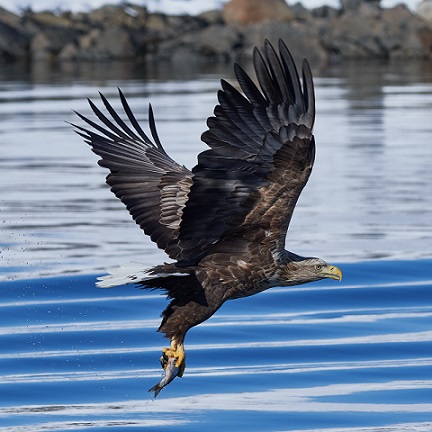
Next on our list of rare bird species in the UK is the glorious white-tailed eagle. This incredible bird boasts a broad wingspan of up to 2.5m and a white, wedge-shaped tail that gives it its name. This eagle was once native and widespread across the British Isles but where unfortunately hunted into extinction in both Britain and Ireland by the early 20th century.
Nowadays, just over 100 pairs breed in Western Scotland, mainly on the coast where they like to feed on fish, water birds, carrion and from time to time lambs. These birds are quite long-lived, surviving for around 20 years at a time and mate for life.
Willow tit
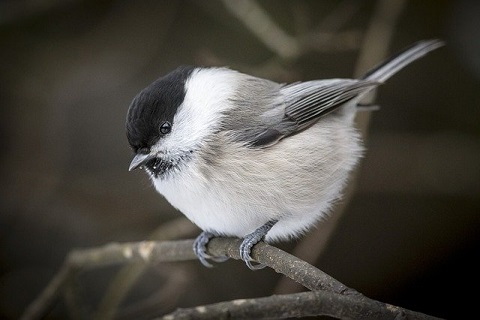
The last on our list for some of Britain's rarest birds is the willow tit, which has become extremely rare across the whole of the UK. This small, cute bird can be identified thanks to its distinguishable sooty brown middle, black cap and white neck.
You can often find willow tits buried in their nesting holes that they dig out themselves, typically located in a dying tree or stump. Here, they gather hair, feathers and fur to build their nest where they can remain out of sight of the surrounding predators.
And that's it, some of the rarest birds you're likely (or unlikely) to come across in Britain! We hope you've enjoyed reading through our small list of rare bird species found in the UK and hope to see you again for more bird news and stories!
Be sure to keep an eye out on our blog and across our socials where we are posting and sharing regular bird-related updates.
RWBF on Twitter > RWBF on Facebook >
 Back
Back Bird Foods
Bird Foods
 Seed Mixes
Seed Mixes Straight Seeds
Straight Seeds Mealworms & Worms
Mealworms & Worms Chicken Feed
Chicken Feed Duck Food
Duck Food Peanuts & Peanut Butter
Peanuts & Peanut Butter Suet & Fat Balls
Suet & Fat Balls No Mess Bird Seed
No Mess Bird Seed Wheat Free Bird Seed
Wheat Free Bird Seed Sunflower Seeds
Sunflower Seeds Softbill Bird Food
Softbill Bird Food Bulk Bird Seed
Bulk Bird Seed Trial Packs
Trial Packs Pick & Mix
Pick & Mix Mini Pick & Mix
Mini Pick & Mix Birdie Basics: Budget Bird Food
Birdie Basics: Budget Bird Food Food for Small Birds
Food for Small Birds Back
Back Bird Feeders
Bird Feeders
 Seed Feeders
Seed Feeders Peanut Feeders
Peanut Feeders Peanut Butter Feeders
Peanut Butter Feeders Suet & Fat Feeders
Suet & Fat Feeders Window Feeders
Window Feeders Hanging Feeders
Hanging Feeders Feeding Stations
Feeding Stations Ground Feeders
Ground Feeders Easy Clean Feeders
Easy Clean Feeders Bird Tables
Bird Tables Seed Trays
Seed Trays Bird Baths & Drinkers
Bird Baths & Drinkers Feeder Accessories
Feeder Accessories Feeder Hygiene
Feeder Hygiene Squirrel Proof Bird Feeders
Squirrel Proof Bird Feeders For the Kids
For the Kids Niger Seed Feeders
Niger Seed Feeders Mealworm Feeders
Mealworm Feeders Bird Food Storage
Bird Food Storage Fat Ball Feeders
Fat Ball Feeders Tube Feeders
Tube Feeders



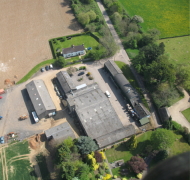 Our Farm
Our Farm
 Tips & Advice
Tips & Advice
Contact Us

















